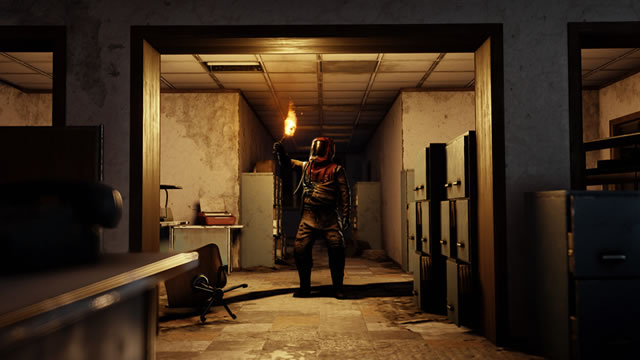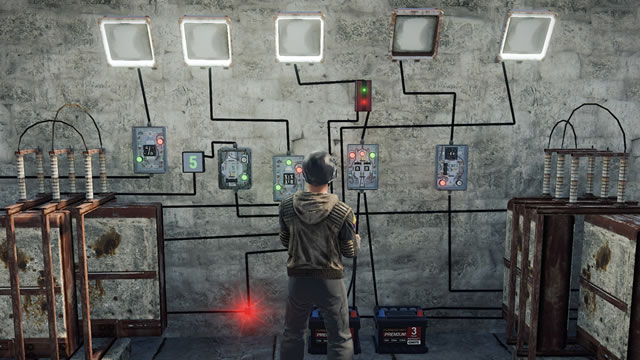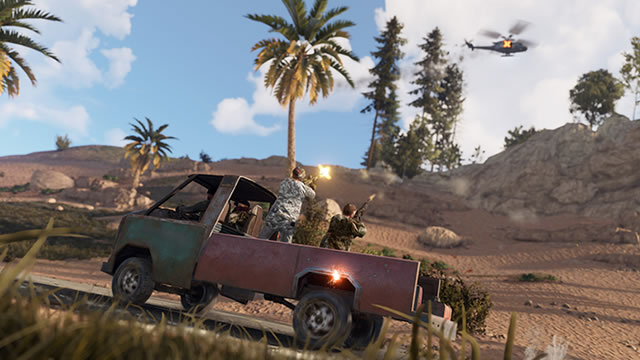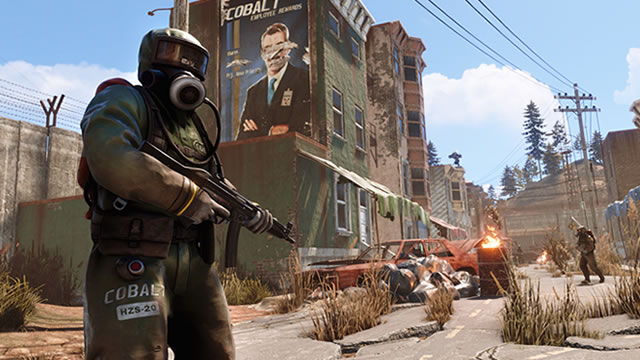Rust is all about survival, but some players are experiencing problems that aren’t based in the game’s open world. This is because various performance issues can result in stuttering, lag spikes, and freezing. Not only do these break the sense of immersion, but they can make the act of survival that much more difficult. Fortunately, it’s possible to fix stuttering and other types of frame rate problems with a few basic tweaks.
How to fix stuttering, freezing, and lag spikes in Rust

If you’re experiencing lag spikes, stuttering, freezing, or frame drops in Rust, it’s time to look over your hardware. These fixes are specifically aimed at PC players that run into performance issues. Hardware aside, it’s possible to improve frame rates and reduce stuttering with software adjustments.
First things first: You’ll need to make sure your system meets the game’s minimum system requirements. Rust is several years old by now, but the system requirements still call for a moderate amount of power:
- CPU: Intel Core i7-3770 or AMD FX-9590
- GPU: Nvidia GTX 670 2GB or AMD R9 280
- RAM: 10GB
- Storage: 20GB available (SSD recommended)
- OS: Windows 8.1/10 64-bit
If you attempt to run the game with less than the minimum requirements, you’re likely to run into stuttering or freezing. This is especially true with consideration to overall system memory, hence the lofty 10GB recommendation. By many accounts, 8GB just won’t cut it. The same can be said for the GPU memory requirement, as graphics cards with less than 2GB memory will struggle to load textures.
Performance issues with high graphics settings

This leads into a second common issue: Asking too much of your computer. Rust has a reputation for demanding a lot out of a PC. Particularly where under-powered hardware is concerned, players may discover that they’re pushing their PC too hard. At peak performance levels, they risk overheating their components, leading the system to throttle performance or otherwise risk burning out.
Fortunately, the solution here is simple. Freezing, stuttering, and lag in general can all be minimized by reducing the game’s graphics settings. Lowering the running resolution or texture detail should be enough to start seeing smoother performance.
There’s also another fix recommended by the Rust community: Run the game full-screen. Windowed modes just seem to make things run worse, as the operating system won’t focus exclusively on game performance.
Some servers are prone to stuttering
Unfortunately, even players who have powerful computers will run into frame rate issues. In a lot of cases, they’ve found that stuttering and lag are reduced or outright disappear when switching servers. If your PC is more than up to the task, try playing on a closer or less-populated server. This may not be ideal in all cases, but the upside is you’ll be able to enjoy the game with minimal distractions.
Advanced stuttering fix: Adjust the garbage collection cycle

This last fix is one of the most common recommendations from power users. It involves adjusting the game’s automatic memory management, usually referred to as garbage collection. When closely monitoring system performance, players noticed that stuttering and lag spikes occurred right when the garbage collection cycle began. Knowing that, the obvious solution to fix stuttering is to change the frequency when garbage collection occurs.
The basic version of this fix was spelled out on Facepunch Studios’ Rust blog last year. A much more detailed explanation can be found on the Rust subreddit, including an official response from a Facepunch representative. We hesitate to give any shorthand advice here, as the changes required depend heavily on your PC, specifically the amount of system RAM.
With that said, we can at least outline how this fix works. It involves changing the gc.buffer convar value to something other than the default of 256. With this default setting, the game will attempt to clear its memory usage once it exceeds around 128 megabytes. As long as you’ve got plenty of extra RAM, you can decrease the garbage collection interval by increasing the buffer value to something like 2048. This will minimize frame rate drops and stuttering by virtue of running memory management procedures less often.
Generally speaking, you can fix lag spikes, stuttering, and freezing in Rust by making sure your PC meets the minimum or recommended specifications. Lowering graphical settings is the common way to increase frame rate, and lag can often be minimized by switching to a better server. Barring anything else, you can reduce stuttering significantly by adjusting the frequency of garbage collection. It may seem like a lot of work, but these fixes should result in a much smoother experience overall.







